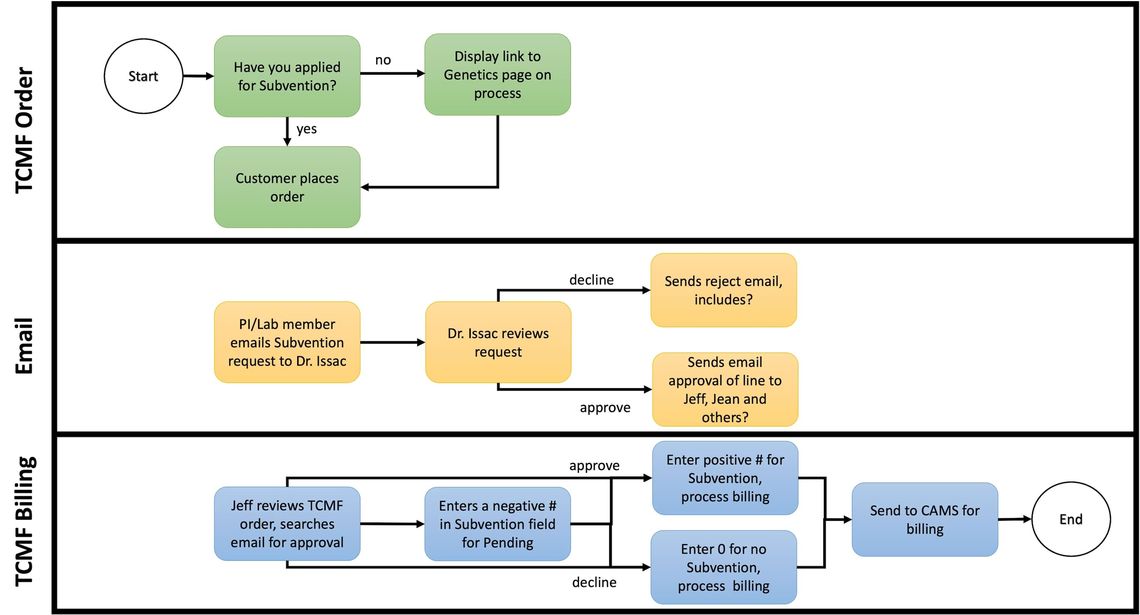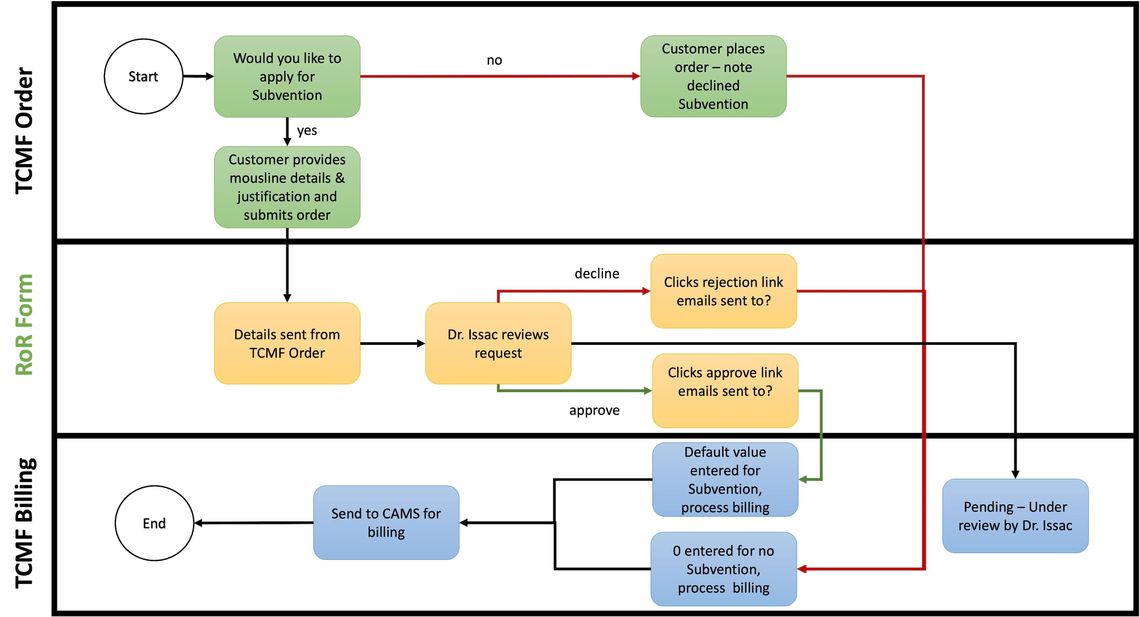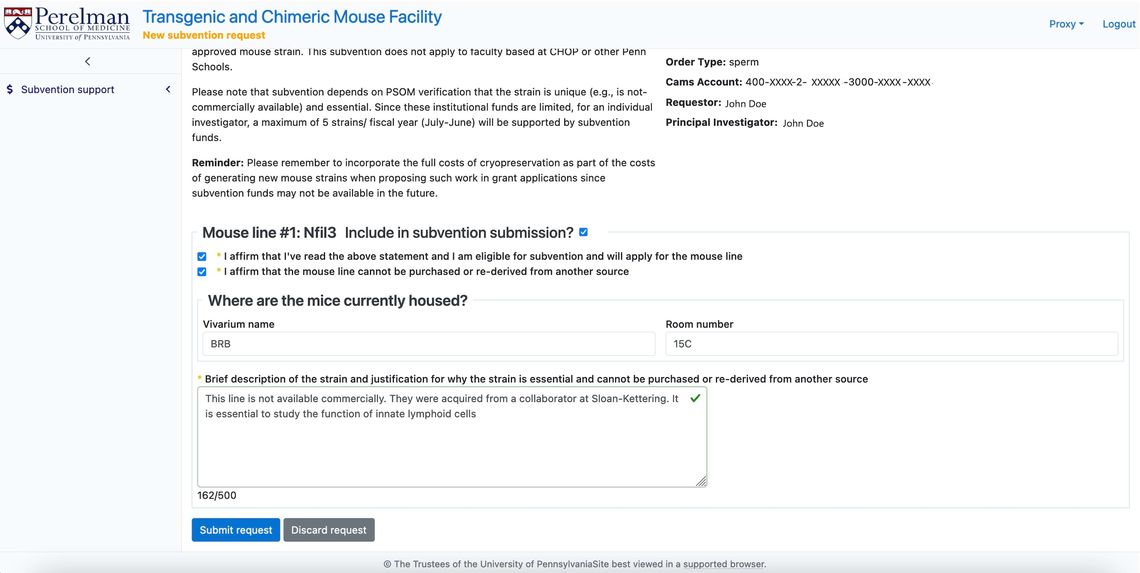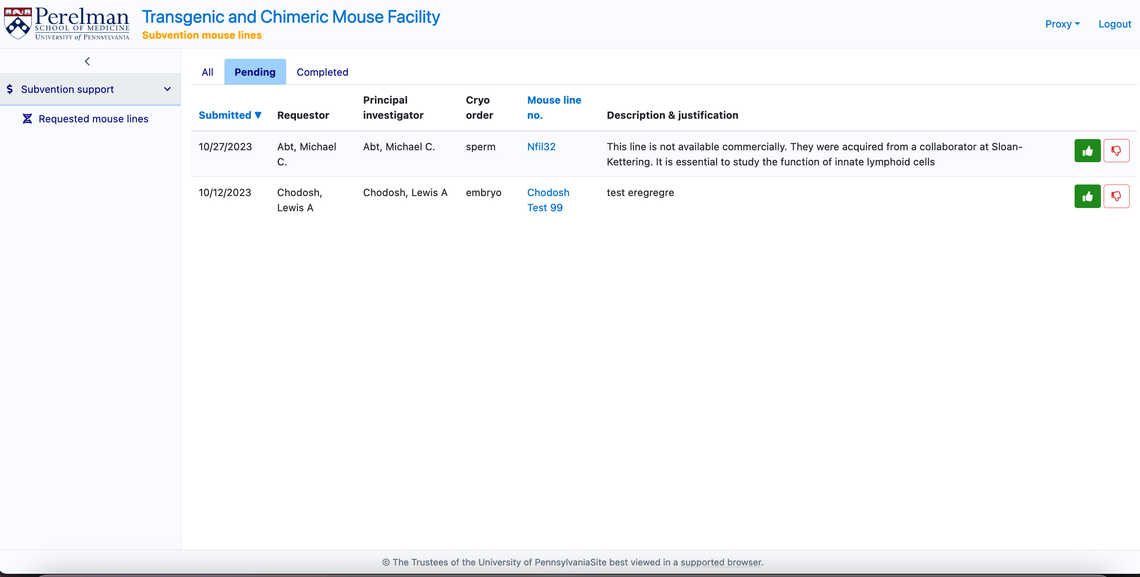Fall 2023
Leadership Thoughts
You may have noticed a small change this fall – DART is returning to our roots as Penn Medicine Academic Computing Services (PMACS). While the PMACS name never fully disappeared, the IT staff supporting the Perelman School of Medicine are excited to resume using the PMACS name. Steps are underway to update newsletters, websites, and other content to reflect the PMACS brand.
In addition to returning to PMACS, this month we are pleased to announce several staffing changes. We welcome Meredith Fetters to PMACS and congratulate Ned on a well-deserved promotion. You can read more about each of their new positions below.
Finally, there are several exciting projects we can share this quarter. BioRender, a popular platform for creating scientific images to be used in posters, publications and papers is now available through Penn’s Office of Software Licensing. We have also deepened our connection to the Penn Medicine IS Service Desk, allowing us to add another method for members of the PSOM community to report technical issues. Last but not least, the PSOM Web Development team has two new application launches to share that improve our ability to conduct world class research.
PMACS IS Staffing Announcements
 Meredith Fetters is the Associate Chief Information Officer (ACIO) Research Information Systems within the Information Services organization. In this role, Meredith reports directly to Mike Restuccia and is responsible for all Perelman School of Medicine information systems activities. Reporting initially to Meredith are Doug Brunk, Ned Haubein, Vince Frangiosa (plus additional Service Information Officers that are projected to be added to the team).
Meredith Fetters is the Associate Chief Information Officer (ACIO) Research Information Systems within the Information Services organization. In this role, Meredith reports directly to Mike Restuccia and is responsible for all Perelman School of Medicine information systems activities. Reporting initially to Meredith are Doug Brunk, Ned Haubein, Vince Frangiosa (plus additional Service Information Officers that are projected to be added to the team).
Meredith joined Penn Medicine in 2016, as a result of the merger between Chester County Hospital and Penn Medicine. At Chester County Hospital, Meredith provided 10+ years of service and held a variety of roles including serving as the leader of the hospital’s clinical, revenue cycle, and administrative platforms as well as helping to lead the implementation of PennChart electronic health record. While at Penn Medicine, Meredith led the Information Services Project Management Office (PMO) and most recently oversaw a variety of efforts at Lancaster General focused on patient digital engagement and revenue cycle optimization.
Meredith attained a Bachelor of Arts from Shippensburg University and a Master of Science in Project Management from Drexel University. Meredith’s collaborative and consultative style has generated many benefits for Penn Medicine during her tenure and looks forward to working with the research community at Penn Medicine.
 Ned Haubein has been promoted to the role of Senior Director of Research Information Systems within the Information Services organization. In this role, Ned reports directly to Meredith Fetters and is responsible for all Perelman School of Medicine research information systems activities. Jamie Howell and the Clinical Research Information Systems teams report to Ned. For the time being, Ned will continue to oversee the LIMS team.
Ned Haubein has been promoted to the role of Senior Director of Research Information Systems within the Information Services organization. In this role, Ned reports directly to Meredith Fetters and is responsible for all Perelman School of Medicine research information systems activities. Jamie Howell and the Clinical Research Information Systems teams report to Ned. For the time being, Ned will continue to oversee the LIMS team.
Ned joined Penn Medicine in 2013 to lead the Laboratory Information Management Systems (LIMS) implementation. Over the past 10 years, Ned has skillfully overseen the growth and expansion of the LIMS team and the many initiatives they have supported. He was instrumental in supporting the work to integrate the Penn Medicine BioBank with PennChart and Cerner as well as the effort to manage samples for the COVID SAFE initiative. Ned has been a great partner to the Immune Health Group, Center for Cellular Immunotherapy, and Gene Therapy programs as the LIMS team implemented solutions for those groups to support research laboratory operations.
Ned attained a BS in Chemical Engineering from the University of Delaware and a PHD in Chemical Engineering from Northwestern University. Ned’s wealth of knowledge and experience with biotechnology, data analysis and complex computation combined with his leadership skills will enable him to continue to partner with the research community and further expand the tools and platforms needed.
PMACS and the Penn Medicine IS Service Desk Announce Enhanced PSOM IS Service Desk Support
PMACS and the Penn Medicine IS Service Desk are happy to announce an additional method for requesting technology support. A major goal of this initiative is to enhance the quality of IS service for members of the Perelman School of Medicine (PSOM).
With this change, PSOM faculty, staff and students can now contact the IS Service Desk to report technology issues via 215-662-7474. This adds to PSOM’s existing methods of requesting support, including the PMACS Service Desk, MedHelp and ISAAC.
Implementing this new capability is just the first step of future, deeper integration. With this initial integration in place, the team is now exploring additional opportunities such as enabling the IS Service Desk to perform select first call resolutions to PSOM-focused support needs.
BioRender Now Available Through Penn’s Office of Software Licensing!
It is with great excitement that the University of Pennsylvania can now announce that BioRender is available as a software offering through Penn’s Office of Software Licensing (OSL). Providing BioRender through Penn’s OSL allows Penn faculty, staff, and professional students to take advantage of significant discounted pricing, while benefitting from the advantages of using PennKey Single Sign On to access their scientific illustrations.
For those unfamiliar with BioRender, the service is a cloud-based software that facilitates creating scientific illustrations for use in posters, presentations, and papers. BioRender also enables individuals to collaborate on illustrations natively within the platform. With a paid license through OSL, illustrations created with BioRender can be used within scientific publications, posters, and presentations.
This project, a collaboration with Penn’s OSL, Penn Vet, and SEAS, further signifies Penn’s commitment to making resources available to support the University’s research mission.
PSOM Web Development Unveils New Transgenic and Chimeric Mouse Facility Subvention Process
The Transgenic and Chimeric Mouse Facility (TCMF) provides a centralized service to efficiently produce infection-free transgenic and genome-edited strains of mice. TCMF offers many different services, including cryopreservation which preserves unique mouse line strains that are not commercially available, yet essential for research.
The new streamlined process launched in October 2023. It will be a connected workflow from PhP to a Rails web application. Using the new process, a PSOM faculty member will submit a cryopreservation request. The faculty member then completes the appropriate subvention form. A member of the TCMF Subvention team will be notified to review a new request in the Rails app. Finally, the TCMF Subvention administrator’s decision will be recorded and will update the TCMF PhP Billing application with the funds to process billing.
The new process replaces an existing manual process involving email, spreadsheets, and manual billing steps. This will help expedite the processing of subvention requests, which are especially critical during a disease outbreak. Reducing the time to request and process a subvention request will help preserve critical mouse strains during a future outbreak. The new process also allows the TCMF core to better track the number of subvention requests each year.
Old Process

New Process

New User Interface
A new user interface was part of this rollout – see screenshots below.
Web Form for PSOM

Admin Review Screen of Subvention Requests

Research Billing Application Receives Major Upgrade for Office of Clinical Research
The Research Billing Application is a critical component in the workflow that allows UPHS to properly bill study teams for their use of clinical supplies and services in support of clinical research. The RBA generates a unique billing code (RBN #), which replaces the standard health insurer billing process in PennChart for clinical activities that should be charged to research.
The previous version of the RBA was built on an unsupported version of PHP, was approximately 20 years old, and needed new features. The PSOM Application Development team and the Office of Clinical Research determined that rebuilding the application on a supported platform (Ruby on Rails) was preferred over enhancing and updating the current PHP version.
The new application was launched in October 2023 to significantly reduce administrative burden. It minimizes the required user entry, reducing clicks for most processes by more than 50%. In addition, the application strives to save the user time by providing a single and dedicated tab for work, called “Action Needed,” that displays their real-time and custom “to-do” list. To enable these time-saving features, the development team built new integrations with applications like CAMS and PennERA, to feed the new Research Billing Application with cross-platform data and decisioning power.
Use Good Password Practices to Deter Cyber Attacks
Protect our systems from simple attacks using a strong password.
-
Use a mix of letters, numbers, and special characters, and do not use simple dictionary words
-
Although we only require eight characters, we strongly recommend twelve or more to increase effectiveness
-
Never write down or display your password where others can read it
-
Do not use the same password for different accounts
-
Do not use passwords that are based on personal information that could be easily accessed or guessed (phone numbers, addresses, names, etc.).
Strong passwords are important because password guessing programs can break shorter and simpler passwords in seconds or minutes. When attackers steal passwords, they can take their time attacking our systems and data, using your stolen account as their key. For more tips on strong passwords, please review our Password Standard.